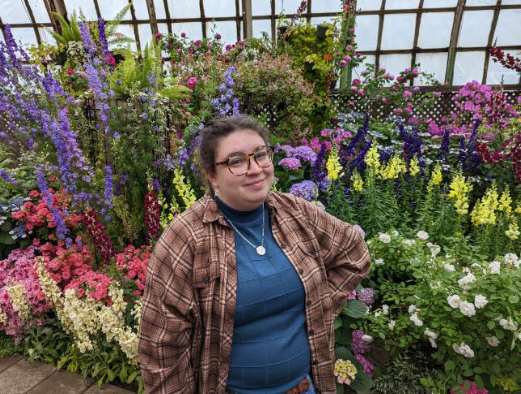Naomi T-T Levine

contact Naomi via naomit.tlevine[at]gmail[dot]com
Current Organizational Relationships
Kitsap Public Health District
This is the local public health office for all of Kitsap County.
Salish Behavioral Health Administrative Services Organization
This is a tri-county (Clallam, Jefferson, and Kitsap) entity which contracts with and coordinates different organizations in improving mental and behavioral health and substance use in the region.
DISCO Network
The DISCO Network integrates critical humanistic, social science, and artistic approaches to digital studies and foregrounds questions about the cultural implications of technology to envision a new anti-racist and anti-ableist digital future.
The acronym DISCO stands for: Digital, Inquiry, Speculation, Collaboration, and Optimism!
The following five labs are associated with the DISCO Network
Black Communication & Technology Lab at the University of Maryland
Future Histories Studio at Stony Brook University
Digital Accessible Futures Lab at the University of Michigan
Humanities & Technoscience Lab at Purdue University
Project on Rhetorics of Equity, Access, Computation, & Humanities Lab at Georgia Tech
Past Organizational Relationships
Anti-Racist Reading Group
“In a racist society it is not enough to be non-racist, we must be anti-racist.” –Angela Davis
This is a reading group in the Purdue math department that I co-facilitated with my husband Alden Bradford while we were in graduate school. The group was focused on antiracism, generally in the world at large and specifically in the realms of math and math education. We sought to maintain an inclusive atmosphere for open discussion, personal growth, and active exploration. Total beginners to antiracism were especially welcome!
This group is now being run by Patrick DeBonis and you can contact Patrick by following the link through to the webpage. Note, changes to the group mission and structure may have changed.
Writer’s Workshop Group
This was a group of graduate students that got together at least weekly via Zoom to talk about writing processes, share tips for keeping track of sneaky conference deadlines, and served as a social obligation which reminded us to keep up with our writing. I founded this group during the Fall Semester of 2020 as a response to the overwhelming isolation of doing academic work that was being exacerbated by the global pandemic of COVID-19.
Here’s a list of some of the helpful resources that members shared which helped them work on improving their relationship to the work of writing and the writing process (I have done my best, with the capacity that I have, to check through these resources to make sure that they are accessible and useful for a diverse audience, but my time is limited; if there are concerns about any of these resources, please, email me):
- The article “Teach Writing as a Process Not Product” by Donald M. Murray
- The video 8 Productivity Hacks that Changed My Life by artist Campbell Walker (a.k.a. Struthless)
- Even MORE resources from Dr. Raul Pacheco-Vega
- The Hammer Research Repository is home to all submitted theses and disserations of Purdue University Graduate Students
- The video [Why you’re reading less (my marathon strategy)] (https://youtu.be/2a5_2OHtHeg) by YouTuber, poet, and former employee of the UK publishing industry Lena Norms
- The book “Writing Your Journal Article in Twelve Weeks: A Guide to Academic Publishing Success” by Wendy Laura Belcher
- The app Focus Keeper available on Apple or Android
- The app Rescuetime is available for both MacOS and Windows
- The video How to Accomplish Long Term Projects with ADHD by the channel How to ADHD
Grassroots Maternal and Child Health Initiative
Mission: Build the capacity of community members and organizations to bring about systems change that improves maternal and child health outcomes in marginalized neighborhoods.
Approach: Train, mentor, and partner with Grassroots MCH Leaders to bring about community-centered approaches that address inequitable social and economic systems underlying poor maternal and child health outcomes.
LASER PULSE
LASER (Long-term Assistance and SErvices for Research) PULSE (Partners for University-Led Solutions Engine) is a five-year, $70M program funded through USAID’s Innovation, Technology, and Research Hub, that delivers research-driven solutions to field-sourced development challenges in USAID Partner countries.
A consortium led by Purdue University, with core partners Catholic Relief Services, Indiana University, Makerere University, and the University of Notre Dame, implements the LASER PULSE program through a growing network of 2,700+ researchers and development practitioners in 62 countries.
LASER PULSE collaborates with USAID missions, bureaus, and independent offices and other local stakeholders to identify research needs for critical development challenges, and funds and strengthens capacity of researcher-practitioner teams to co-design solutions that translate into policy and practice.